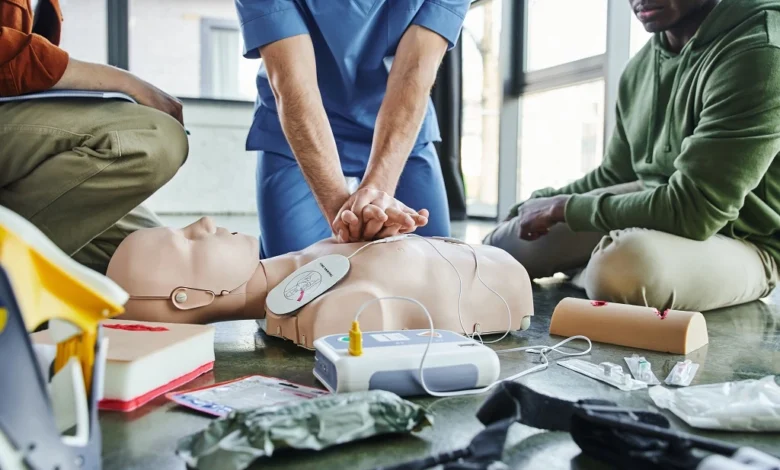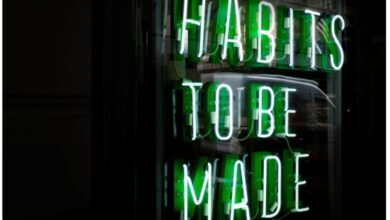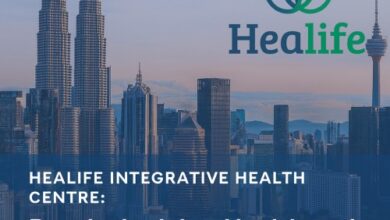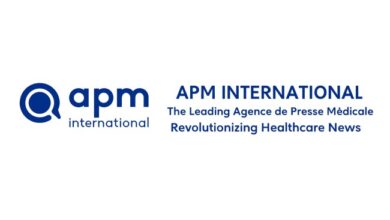Boost Your Resume with CPR Certification and a Clean Bill of Health

In today’s competitive job market, qualifications and experience are no longer the only things employers look for in a potential hire. More and more companies are placing a premium on well-rounded candidates — individuals who bring not only technical skills to the table but also a commitment to personal responsibility, public health, and safety. One surprising way to stand out? Show that you care about your health and the well-being of others.
Two simple but powerful steps can help you do just that: earning your CPR certification and maintaining a clean bill of health through regular STD testing. Though these may seem like personal choices, they speak volumes to potential employers about your discipline, awareness, and commitment to living responsibly.
Let’s explore how these two actions can give your resume and reputation the boost they deserve.
CPR Certification: More Than Just a Safety Skill
Cardiopulmonary resuscitation (CPR) is a life-saving skill that every adult should know. It enables you to respond quickly and effectively in the event of a cardiac arrest or choking incident. But beyond its life-saving potential, CPR certification signals something deeper to employers: that you are someone who takes initiative, cares about others, and can stay calm under pressure.
What CPR Certification Says About You
When you include CPR certification on your resume, you’re telling employers several things:
- You’re trained to respond in emergencies, showing calmness and preparedness.
- You understand the importance of health and safety in any environment.
- You’re willing to take extra steps to contribute to your workplace or community.
- You are capable of taking leadership when it matters most.
For roles in education, childcare, security, hospitality, and even corporate environments, CPR certification is increasingly seen as a plus. In some industries, it’s a requirement — but in others, it’s an excellent way to differentiate yourself from candidates who may have similar qualifications but less initiative.
Getting Certified Is Easier Than Ever
Thanks to online platforms and flexible training options, becoming CPR certified doesn’t require hours of in-person classes or complicated scheduling. Providers like the American Red Cross and other accredited organizations offer online CPR classes that cover essential topics, from chest compressions to the use of Automated External Defibrillators (AEDs). These programs typically take only a few hours to complete and provide you with an official certification card valid for up to two years.
Health Responsibility: A Reflection of Your Personal Brand
It may seem unconventional to associate personal health with your professional qualifications, but your health choices say a lot about your character. Regular health screenings — including STD testing — demonstrate that you value not only your own well-being but also that of your community. In an age of pandemic awareness and global health consciousness, this kind of personal accountability can strengthen your professional image.
Why Employers Care About Health Awareness
In many sectors, especially those involving teamwork, customer service, or public interaction, companies are looking for individuals who take health seriously. Here’s why:
- Reduced workplace risk: A clean bill of health helps maintain a safe work environment.
- Health-conscious culture: Employers want team members who align with their focus on health, safety, and wellness.
- Proactive mindset: Regular testing and health responsibility reflect a proactive, not reactive, mindset — a trait highly valued in professional settings.
While it might not be listed on your resume explicitly, discussing your commitment to regular medical checkups and testing — including STD screenings — during interviews or workplace wellness programs can enhance how you’re perceived.
Presenting Yourself as a Responsible Professional
When you pursue certifications or maintain good health habits, you’re not just checking a box — you’re crafting a personal brand. Your brand is the story others associate with your name, and every small action contributes to how that story is told.
Here’s how CPR certification and health responsibility can impact that narrative:
- Preparedness: You’re ready for the unexpected, whether it’s a health emergency or a challenging project.
- Reliability: You show up for yourself and others, consistently and responsibly.
- Awareness: You make informed decisions, prioritizing safety and the greater good.
- Initiative: You don’t wait for emergencies or problems to act — you stay ahead of them.
Whether you’re applying for a new job, asking for a promotion, or working on your personal growth, these traits can give you an edge.
The Hidden Network Effects
Employers aren’t the only ones who notice your efforts. Colleagues, clients, and networking contacts often remember the people who are prepared and dependable. Imagine being the person who saves a coworker’s life using CPR during an emergency. Or the one who encourages others to get tested and stay healthy. These moments have lasting ripple effects, both personally and professionally.
Being responsible with your health can even inspire workplace initiatives — such as wellness programs, mental health check-ins, or peer-led safety training. By being proactive, you may become a catalyst for positive change in your organization.
Bridging Health and Career Goals
Let’s not forget: good health is the foundation of a successful career. Fatigue, chronic illness, or untreated infections can silently chip away at your productivity, confidence, and emotional well-being. When you prioritize your health, you set yourself up for long-term professional success.
Here’s how it all comes together:
- Healthy employees are more focused and resilient.
- Proactive individuals are seen as leaders and role models.
- CPR certification and regular testing are tangible proof of discipline and initiative.
- Preventative health habits can help reduce absenteeism and boost performance.
In essence, the habits you adopt outside of work can deeply influence how you’re perceived inside of it.
Where to Start: Simple Steps That Pay Off
Ready to add a little extra shine to your resume and peace of mind to your daily life? Here’s how you can get started today:
Enroll in an Online CPR Course
Look for a nationally recognized certification. Many programs allow you to learn at your own pace. Completing a course takes just a few hours but delivers life-long value — not just professionally but in everyday emergencies.
Schedule a Health Screening
Depending on your age, sexual activity, and medical history, your provider can recommend a testing plan. For most adults, this includes regular STD screenings. Consider a full panel STD test to cover all bases, even if you’re asymptomatic.
Update Your Resume
Include your CPR certification under your “Skills” or “Certifications” section. If you’ve participated in wellness programs, first aid training, or volunteered in health awareness campaigns, those can be added as well.
Talk About It (When Appropriate)
If you’re in an interview or networking setting where personal development comes up, don’t be afraid to mention how staying certified and tested reflects your commitment to health, reliability, and responsibility.
Final Thought: Be the Candidate Who Cares
In a marketplace flooded with resumes and profiles, it’s the little extras that make someone stand out. Being CPR certified and taking responsibility for your health might seem like small steps — but to employers, they’re powerful signals. They speak of your readiness, maturity, and leadership.
So if you’re looking for a way to quietly but meaningfully enhance your professional appeal, start by taking care of your body and equipping yourself with life-saving skills.
Your resume will thank you.
Your colleagues will respect you.
And someone’s life — maybe even your own — could depend on it.



